Search Results
Showing results 361 to 380 of 466
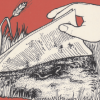
Junk-in-the-Box
Source Institutions
In this outdoor activity, learners explore how a surprising number of animals use human-made litter, such as cans and crumpled paper, to find food and shelter in their environment.
Bag of Bones
Source Institutions
In this activity, learners will use cereal to conduct an experiment and investigate how decreased bone density is related to increased risk of bone fracture.
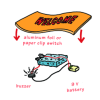
Keep Out!
Source Institutions
In this technology activity, learners build an "alarming" doormat to keep siblings out of their rooms. Use this activity to teach learners about circuits, switches, and sensors.
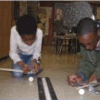
Kick Stick Challenge
Source Institutions
In this design challenge activity, learners investigate series circuits and motors to build a hand-held "kick stick." Their goal is create a battery-operated device that sends a Ping-Pong ball across
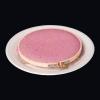
Make Recycled Paper
Source Institutions
Learners shred used paper, add water, and blend it into pulp. They then strain and roll the pulp out to make new paper.
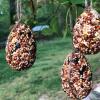
For the Birds
Source Institutions
In this activity, learners will explore nature by creating food for birds. Learners will develop fine motor skills and engage in nature observation through this activity.
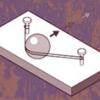
Kicking Machine
Source Institutions
In this design challenge activity, learners build a machine that kicks a Ping-Pong ball into a cup lying on its side 12 inches away.
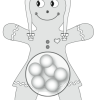
Generations of Traits
Source Institutions
In this hands-on activity, learners track and record the passage of colored "pompom traits" through three generations of gingerbread people.
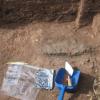
Finding Fossils
Source Institutions
This activity (located on page 4 of the PDF under GPS: Baby Dinosaurs Activity) is a full inquiry investigation to determine the age of fossils based on where they are discovered.
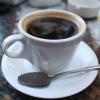
Hot Spoons
Source Institutions
In this physics activity (page 2 of the PDF), learners will explore the concept of thermal conductivity and learn the differences between high and low thermal conductivity.
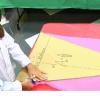
Full of Hot Air: Hot Air Balloon Building
Source Institutions
In this activity, learners create a model of a hot air balloon using tissue paper and a hairdryer. Educators can use this activity to introduce learners to density and its role in why things float.
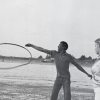
Clam Hooping
Source Institutions
In this two-part outdoor activity, learners conduct a population census of squirting clams on a beach or mudflat, and investigate the clams' natural history.
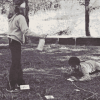
Silent Stalking
Source Institutions
In this outdoor game, learners role play predator and prey to explore the importance of keen hearing and silent stalking skills in the animal world.
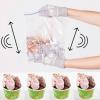
Instant Ice Cream
Source Institutions
In this activity, learners make instant ice cream without using a freezer.
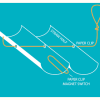
Build a Bubble Circuit
Source Institutions
In this engineering design challenge, learners make a bubble maze that allows bubbles to move through a series of “on” and “off” switches.
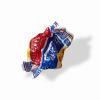
Wrap It Up!
Source Institutions
In this Energy and Environment activity (page 9 of the PDF), learners calculate the mass of a piece of gum, compare it to the mass of the gum's packaging, and then create a bar graph of the results.
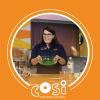
Glow in the Dark Jello
Source Institutions
In this activity, learners will make homemade jello that glows under a blacklight. They will learn about quinine, an ingredient in tonic water that is fluorescent.
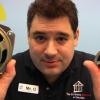
Speak to Me
Source Institutions
In this activity, learners will create a speaker using a paper cup, magnet, and enameled wire. Also included in this activity is a Mr.
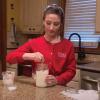
Homemade Butter
Source Institutions
In this activity, learners will turn cream and salt into butter—using marbles. Learners will explore how shaking up fat globules help them create homemade butter.
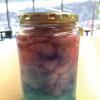
Nebula in a Jar
Source Institutions
In this activity, learners will build a model of a nebula using cotton balls and colored water. Astronomers photograph nebulas and add colors to provide information about the nebula's composition.
